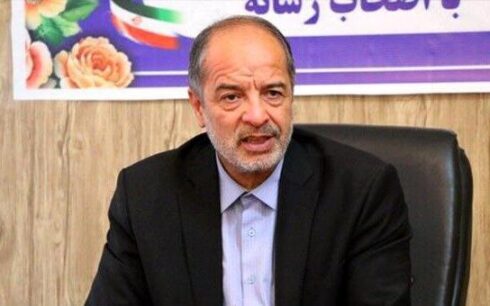Afghanistan’s Taliban rulers are unlikely to stop supporting militants in Pakistan as they feel that economic troubles prevent Islamabad from launching a major operation against the Tehreek-e-Taliban Pakistan (TTP), a new report from a leading US think tank contends.
The report by the Washington-based US Institute of Peace (USIP), published this week, warned that “amid Pakistan’s economic crisis and the Taliban’s rule in Afghanistan, the Pakistani Taliban (TTP) have reemerged as an increasingly potent threat.”
Referring to Kabul’s recent criticism of Islamabad’s policies, the report argued that “this undiplomatic rhetoric underscores the Taliban’s determination to continue supporting the TTP, even in the face of intensified pressure from Pakistan”.
USIP argued that the Taliban’s response to being confronted about their support for the TTP “has been to level counter-accusations which does not signal an impending shift away from that support”.
This comes after a marked increase in attacks by the TTP in Pakistan – especially after a ceasefire between Islamabad and TTP was called off in late November by the group.
The USIP report stated that as Pakistan struggles with a major economic crisis, the fallout from the deadly floods of last fall and an ever-turbulent political scene, “the TTP’s growing threat presents yet another challenge for the struggling nation”.
USIP’s Asfandyar Mir, Andrew Watkins and Tamanna Salikuddin weigh in on the situation and according to Mir, the mosque bombing in Peshawar last month, conducted by a faction of the TTP, is one of the deadliest terrorist attacks in Pakistan in recent years. The scale of the attack and the “ability of the attackers to penetrate deep inside what should be the most secure part of Peshawar suggests that the TTP has re-constituted a critical capability of urban attacks,” he said.
He said the TTP’s escalating campaign of violence is a function of its growing political and material strength — reflected in its political cohesion, expanding cadre of trained fighters, suicide bombers, weapons and equipment.
“Much of the TTP’s political leadership and capability is based in Afghanistan. In Pakistan, the TTP has regained some territorial influence in southern districts of Khyber Pakhtunkhwa, like South Waziristan, North Waziristan, Tank, Bannu and Lakki Marwat. The TTP is able to fundraise through extortion inside Pakistan as well as in Afghanistan — across provinces, there are fundraising drives for the group’s so-called jihad,” Mir said in the report.
According to him, the Taliban in Afghanistan remain very supportive of the TTP and are providing the group with a safe haven. “The TTP also has a lot of popular support in Afghanistan, where both Taliban and non-Taliban constituencies get behind the TTP due to a fervent dislike for Pakistan,” he noted, adding that some Taliban fighters are joining the TTP.
While the balance of opinion within the Taliban is strongly in favor of the TTP, a handful of its leaders, including Sirajuddin Haqqani, the Taliban’s interior minister, have reigned the TTP in on occasion at the request of Pakistan.
Mir stated that the Taliban leader Hibatullah Akhundzada agrees with the TTP that Pakistani system is “un-Islamic.”
Watkins meanwhile stated in the report that the Taliban in Afghanistan appear unlikely to shift their reasoning on providing support to the TTP.
He said the Taliban’s public messaging in the days that followed the deadly mosque bombing had been “almost defiant, offering the weakest of condemnations and painting Pakistan as ultimately responsible for militancy within its borders”.
Two days after the Peshawar bombing, the Taliban’s acting foreign minister, Amir Khan Muttaqi, warned Pakistan against “pointing fingers” or “sowing the seeds of enmity.”
Watkins said that in effect, the Taliban’s response to being confronted about their support for the TTP was to level counter-accusations.
The USIP report stated that these rhetorical signals are matched by anecdotal reports from U.N. officials and other observers “of TTP individuals moving freely and conducting business in Afghan cities”.
While reports indicate the Taliban’s leader in Kandahar along with his close supporters are unlikely to waiver in supporting the TTP on ideological grounds. However, the Taliban leadership “appear to understand the importance of maintaining a functional relationship with Pakistan — or at least preventing tensions from deteriorating into full-scale conflict,” the report stated.
However, Pakistan’s response to the TTP’s resurgence remains incoherent — and it is unlikely to improve in the near-term, Mir noted.
Pakistan’s limited options
According to the USIP report, another key factor shaping the Pakistani response is the country’s deteriorating economy, which is on the brink of a default, and which limits Pakistan’s military options.
Mir said Pakistan can carry out raids and undertake defensive actions inside the country, but it doesn’t have the resources for a sustained high-intensity campaign. However, there is growing pressure for action, as parts of the Pakistani political spectrum are framing the terrorism resurgence as a conspiracy by the military to block former prime minister Imran Khan’s return to power and to get American aid.
“Yet economic pressures and the risk of a conflict spiral, especially amid reports of Taliban fighters joining the TTP, may induce doubts in Pakistan about such a cross-border operation,” he said.
Threat to US
Mir stated in the report that in 2023, the TTP doesn’t pose much of a direct threat to the United States and in general the group appears more focused on its local agenda against Pakistan.
However, he noted that the TTP continues to incubate other direct threats to the United States, including elements of al-Qaeda that “continue to shelter behind the TTP in Afghanistan”.
“In general, the TTP remains helpful to al-Qaeda — although perhaps less so than in the past. If the TTP gains territory in Pakistan, al-Qaeda will look for space in territories controlled by the TTP,” Mir stated.
According to him, there are other foreign fighters in Afghanistan with varied regional agendas, who will find a haven in Pakistan should the TTP make major territorial gains adding that “the more important way in which the TTP can threaten U.S. interests is by seriously destabilizing Pakistan.
“This possibility is real yet not imminent. If it were to materialize, it will raise the specter of eroded Pakistani nuclear security, broader regional instability and migration concerns,” he said.
Salikuddin meanwhile stated in the report that given the current economic and political crisis in Pakistan, U.S. policymakers may be well placed to have conversations with Pakistani leaders about the need to focus and develop a clear counter-TTP plan.
However, Washington’s ability to shape or assist on such a plan will be limited. Salikuddin said “the larger question will be how Pakistan will handle the Afghan Taliban who provides safe haven to the TTP.
“It is unlikely that the Pakistanis will heed any U.S. suggestions to pressure the Afghan Taliban in Kabul (let alone break ties). If Pakistan takes action within Afghanistan and against the Afghan Taliban, it will be because of a decisive move emanating from Islamabad, and not at the behest of the United States,” he stated.





